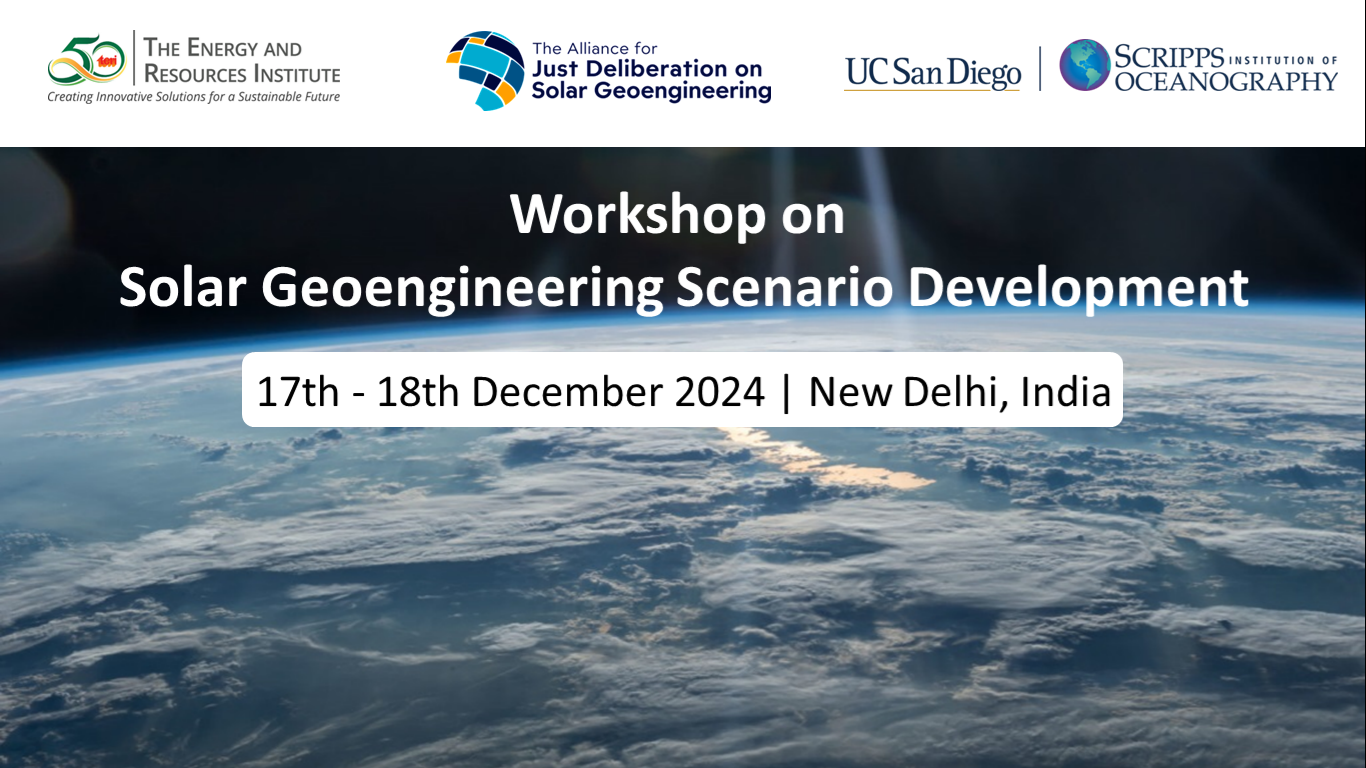Workshop on Solar Geoengineering Scenario Development

Climate change poses a profound global challenge, with escalating greenhouse gas (GHG) concentrations driving extreme weather events, glacial retreat, and sea level rise. Despite decades of international climate negotiations, efforts remain insufficient to limit global temperature rise to 1.5°C under the Paris Agreement. Current trajectories indicate a rise of 2.5–2.9°C by the century's end, underscoring the urgency for innovative solutions. Among emerging technologies, solar geoengineering or solar radiation modification (SRM) is gaining attention as a potential complement to existing climate strategies. By reflecting sunlight back into space, SRM offers a rapid means to reduce global temperatures, though its risks and implications require extensive investigation.
Globally, the discourse on SRM is evolving, with governments, international bodies, and scientists emphasizing the need for research into its physical, socioeconomic, and political impacts. However, these discussions are predominantly shaped by Global North perspectives, necessitating stronger engagement from Global South nations, including India. Given its climate vulnerabilities, economic growth trajectory, and diverse geography, India has a critical role in shaping SRM research and governance, ensuring that regional needs and risks are addressed. Active participation will allow India to influence global decisions while fostering nuanced, India-specific perspectives on SRM's potential use or rejection.
In this context, TERI, DSG, and UCSD are organizing a Scenario Development Workshop in New Delhi on December 17-18, 2024. The workshop aims to deepen understanding of SRM's physical impacts on India, explore the uncertainties surrounding research and governance, and identify pathways for informed decision-making. Through structured lectures and breakout sessions, participants will co-create diverse scenarios, evaluate socioeconomic and political dynamics, and articulate storylines tailored to India's context. These outcomes will form the basis for potential supercomputing simulations, enabling more India-relevant insights into SRM's future implications.
This collaborative effort seeks to empower Indian stakeholders with knowledge and tools to engage meaningfully in SRM deliberations, ensuring balanced, inclusive governance frameworks.
